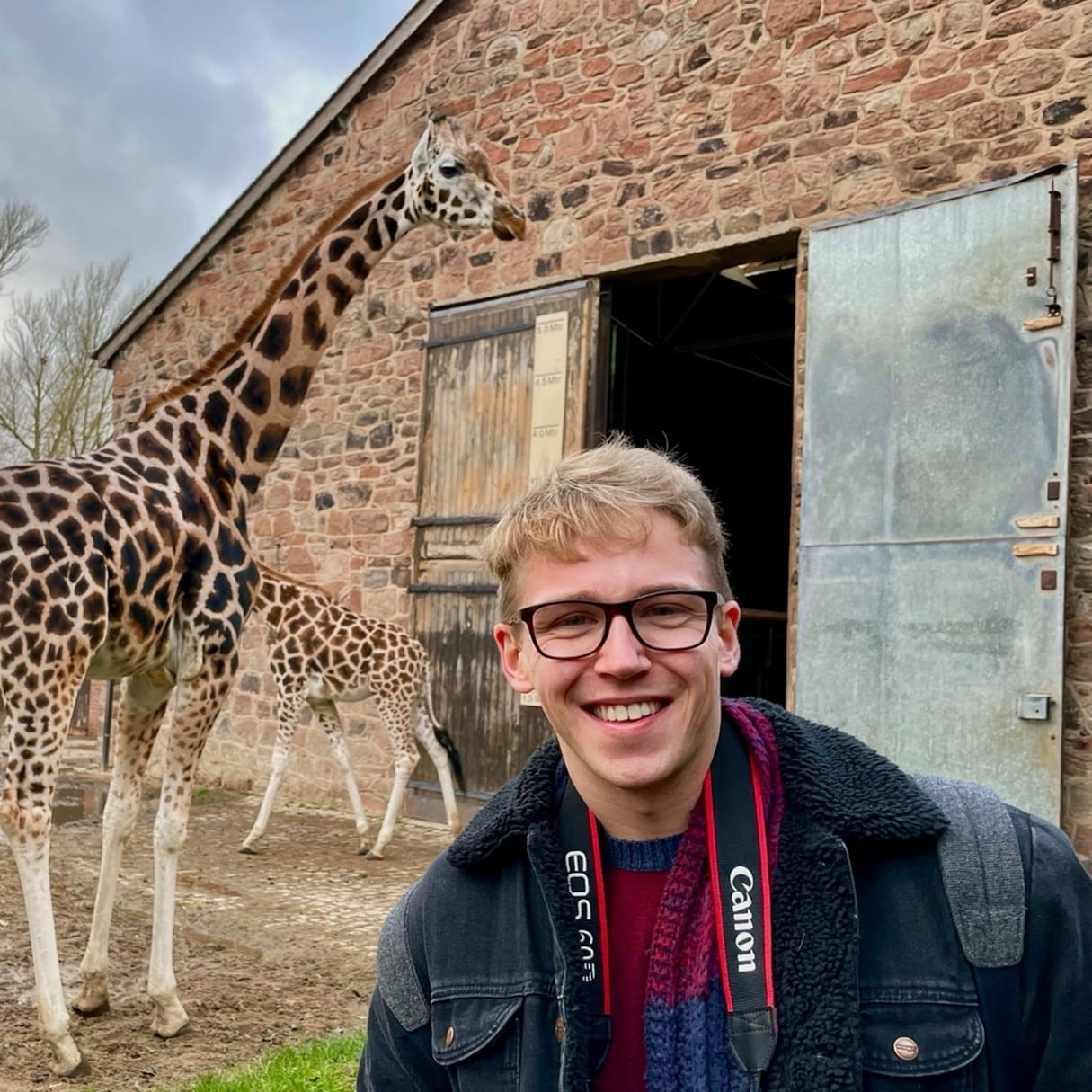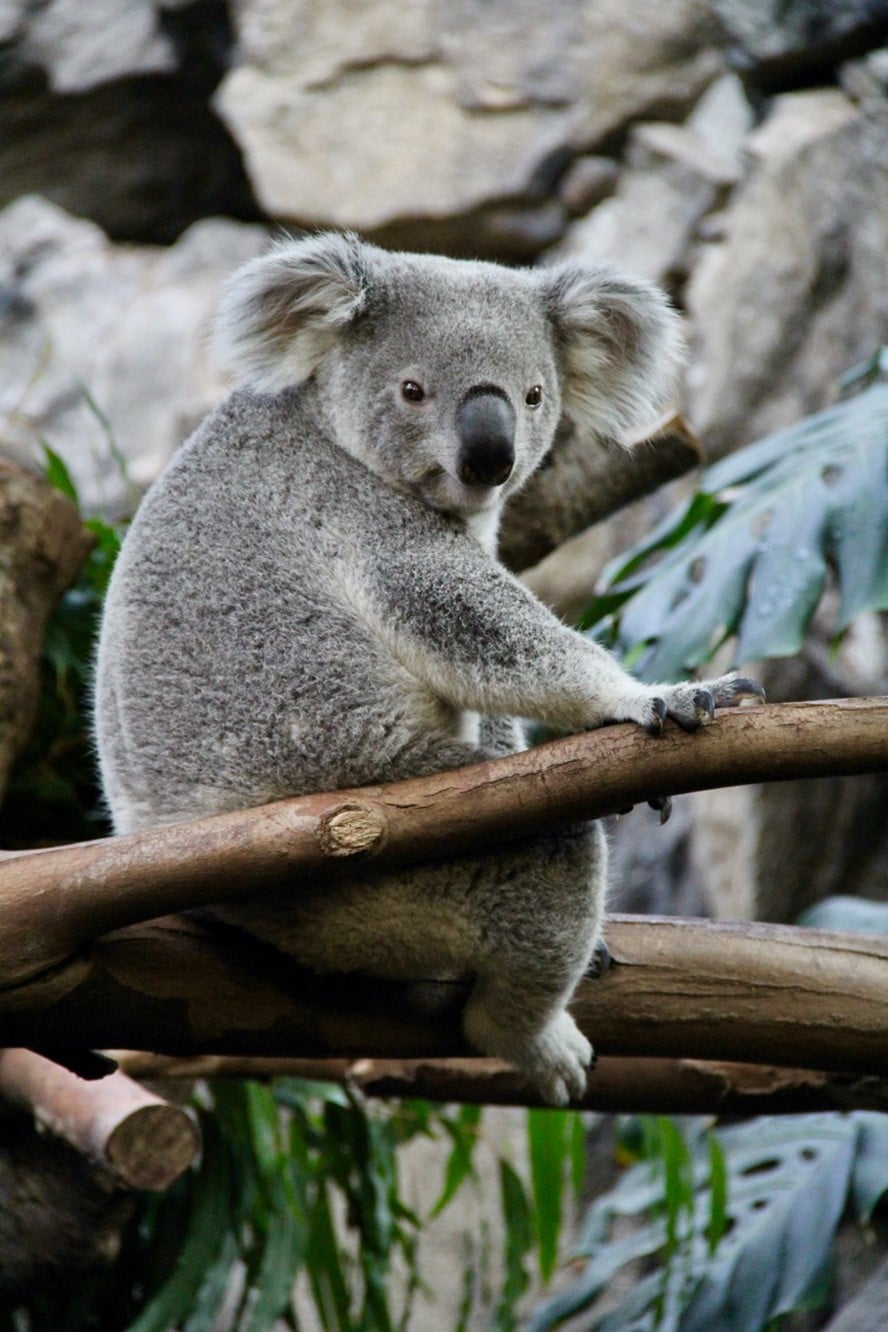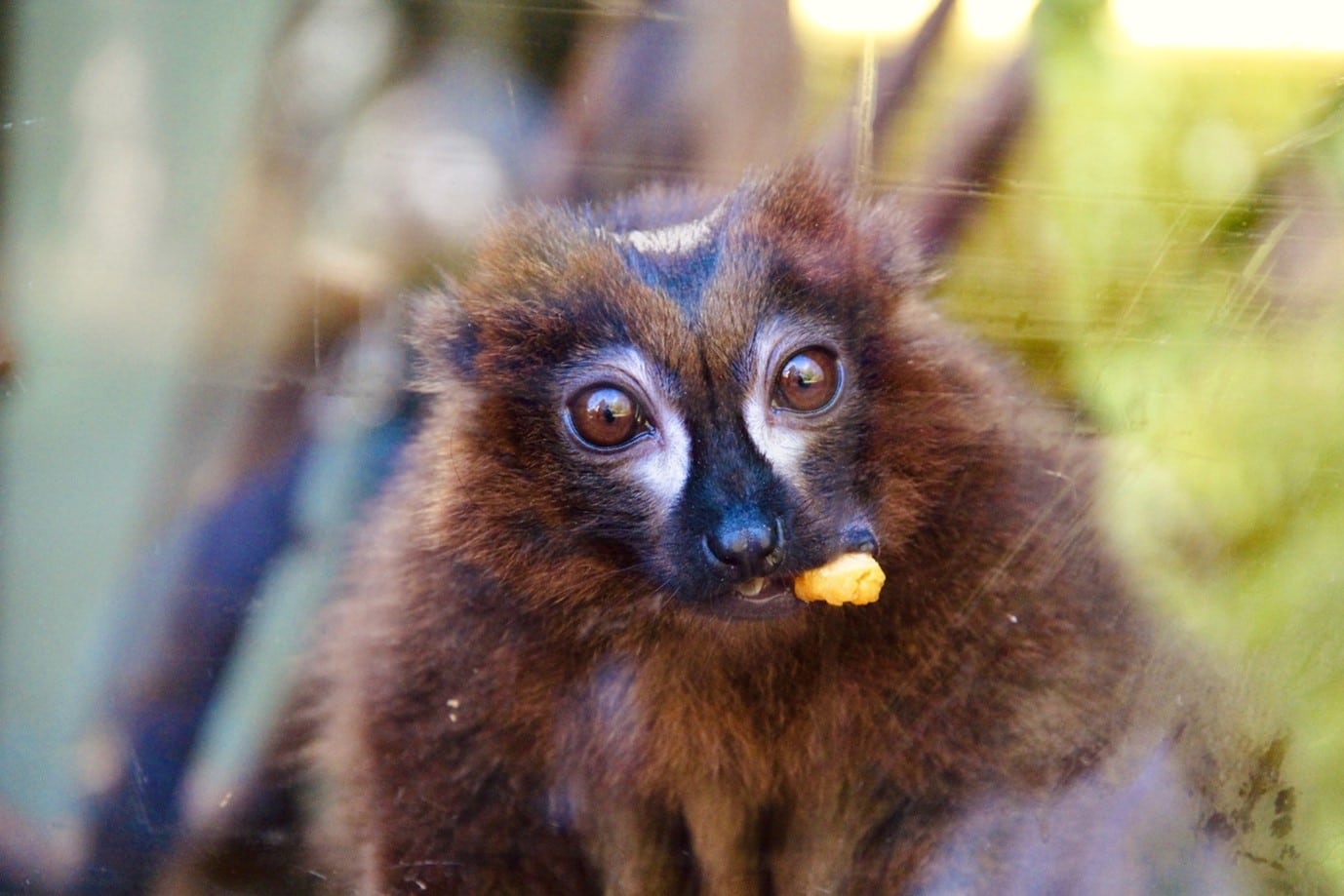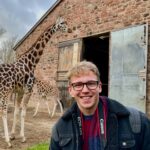Like everyone else, in 2020 I found myself at an impasse. Having worked in the education teams of Zoos, Aquariums & Botanic Gardens, suddenly having no one to share my love of nature with was crushing; especially while trapped at home, witnessing conservation projects suffer so greatly. Therefore, when the inspiration hit to produce my own podcast series, I dove right in and ‘Pangolin: The Conservation Podcast’ was born.

Here I am with a giraffe at the fantastic Chester Zoo. The podcast allowed me to present at their Youth Symposium in 2021! Photo Credit: Jack Baker
Why ‘pangolin’? Well, I believe that the best and most engaging tales are those which no one has heard before. So, when this bizarre walking pinecone was brought to my attention because of its link to coronavirus, I knew I wanted to help tell it’s story! Most only know the pangolin as the most trafficked mammal in the world but there is so much more to these incredible creatures. The pangolin is the world’s only scaley mammal, their behaviours have such a large impact on their environment that they are known as ecosystem engineers and their young are known as pangopups! You can see why I fell so quickly in love, and why I believed there was enough to start a podcast about.

Here is a picture of one of the koalas at Edinburgh Zoo. Did you know that there are people in Australia fighting for the introduction of the ‘Koala Protection Act’? I discussed this with the Chair of the Australian Koala Foundation on my podcast. Photo Credit: Jack Baker
After releasing several episodes about my new favourite creature, the podcast was doing surprisingly well and I had received kind words from countries I hadn’t even dreamed my voice would travel to. Listeners reached out from over 80 countries telling me that the series had encouraged them to speak up and do something about causes which mattered to them. I was completely taken aback by the outpouring of support and kindness.
Honoured by this love, I pushed forward and created more and more content. Four series later, the show has grown into a celebration of all underappreciated members of the natural world. We have chatted to guests including Arnaud Desbiez about the giant armadillo; Julian & Stephanie Fennessy about the giraffe; Patrícia Medici about the tapir; Deborah Tabart about the koala; and a whole host of experts from Madagascar about its incredible endemic species!

A picture of a red-bellied lemur at Edinburgh Zoo. They are incredible creatures who deserve our love, respect and protection! Check out the Lemur Conservation Network for more information. Photo credit: Jack Baker
These experiences have taught me so much, not just about specific conservation stories and wonderful species, but also about how we can all impact the world of conservation. For example:
- Believe in Yourself and Your Skills!
The first thing I learned was that anyone can be involved in conservation. Your ideas are valid. Just because you are not a scientist does not mean that you should be excluded from the conversation. For example, I am certainly not a great scientific mind, I just like talking. But through the podcast, I take direct conservation action by amplifying the stories of species and organisations worldwide. Each episode tells a story and ends with direct and clear advice on how to make a real impact on the topic.
Anyone can make a difference in the world of conservation! By creating something, making small changes to your lifestyle or helping to spread the word about different species you are a valued and important member of the world of conservation – don’t forget that!
- Listen and Amplify
Having said that, something else which is important is that while your opinion is important and valid, it is not the only one out there! We must work collaboratively and inclusively to make a difference. Sometimes the best thing we can do is listen and amplify other voices. For example, I have done multiple episodes on the country of Madagascar. No one knows Madagascar better than the people who live there, so really, while I can help spread their messages, I cannot force my version of conservation onto the people who are working there. There’s always more to learn. It’s all about reading the room and knowing how, when and where you can be the most effective!
Something I have been doing recently is planting wildflowers in my garden to encourage pollinators to thrive, because there’s nowhere I know better than my own home!
- Never lose the joy that comes from conservation
Finally, while producing the podcast a university lecturer commented on my enthusiastic voice and told me to never lose the child-like joy I have for conservation. I believe that this is something we should all try and maintain. Conservation can be marred by bad news, but at the end of the day we are always fighting for something good. We shouldn’t let sadness or anger stop us. For example, while I had an extremely hard time finding a job in the field of conservation during the pandemic, the podcast I produced at that time has opened doors for me which I never thought would be open. I presented at the first ever Chester Zoo Youth Symposium, I have been invited to speak on other podcasts and I have given advice on social media and podcasting to world leading institutions. On top of all that, I have made some fantastic, beautiful friendships along the way. The world can be incredible if we just maintain that excitement for wildlife, and keep fighting for what we believe in.

Nothing brings more happiness than a hippo! This picture was taken at Whipsnade Zoo in early 2022. You can see from my face just how much joy conservation can bring! Photo credit: Jack Baker


